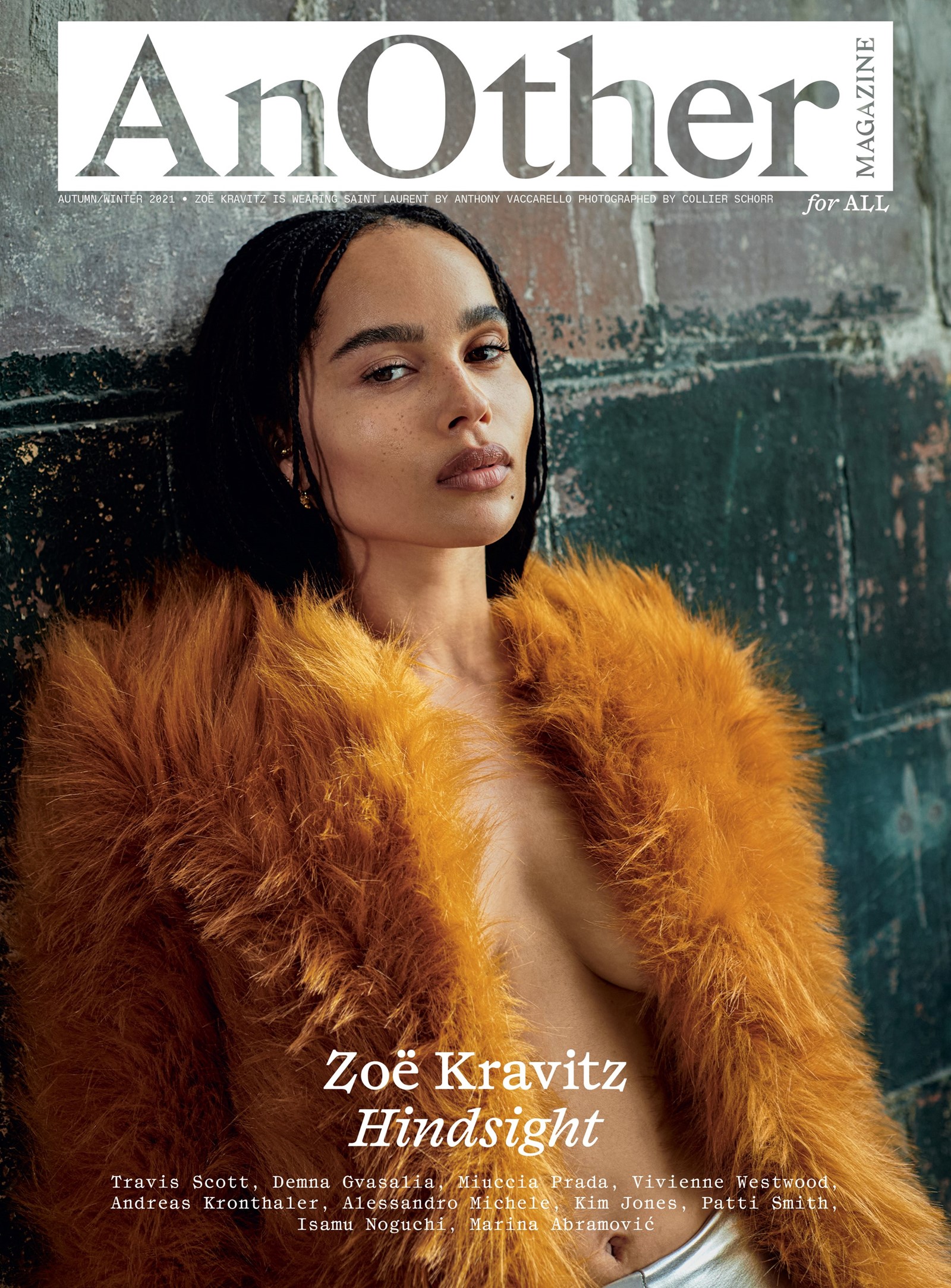This article is taken from the Autumn/Winter 2021 issue of AnOther Magazine:
No one can resist the allure of Zoë Kravitz. Not the waifish model-cum-waitress serving us at Greenpoint’s premier hangout Five Leaves, where we’re meeting for our interview. Between taking our order she reports back to her colleagues in hushed tones that she is serving “Zoë’s table”. Not the archetypal Brooklynite couple reclining in the park on the overwhelmingly humid mid-July day, who only break from gazing at each other to stare as we stroll past post-lunch. Not the two hipster bros who whip their heads around at breakneck speed on Williamsburg’s Bedford Avenue as she walks back to her home nearby.
Although Kravitz herself seems unaware of the attention, one thing is clear: she is the cool kids’ cool kid. She arrives for our interview straight from Pilates, dewy from the midday heat and dressed down in a white tank and heather-grey yoga shorts, her signature wavy braids framing her delicate features. Her mix of good looks and down-to-earth energy (she’s happy to offer counsel on my dating life) goes to prove that some people really do have it all. She’s genuinely nice too. She greets me with a hearty grin, graciously pours us both water every time we run low, and takes breaks from her kale and steak salad to ask with genuine concern if the sound from the busy Brooklyn street where we are sitting will interfere with my recording.
Arguably set up for life with Eighties (and enduring) style icon and actress Lisa Bonet as her mother and perennial rock god Lenny Kravitz for a father, Zoë Kravitz could easily have had her head turned by the inevitable interest this was going to generate in her and her life and assumed vapid It-girl status. A fashion favourite, she has been the face of Saint Laurent across beauty, fragrance and fashion for four years – “It’s simple and beautiful clothing,” she says.
“I feel like me and Anthony inspire each other. We talk about inspiration pictures and send things back and forth. Me and Anthony are tight.” She has also fronted campaigns for Calvin Klein, Tiffany and Balenciaga. Yet Kravitz has taken that undeniable head start in life and written her own story.
Beginning her acting career with appearances in films such as 2011’s X-Men: First Class and 2014’s Divergent garnered her big-screen time, albeit in supporting roles. A kick into high gear came with parts in George Miller’s Mad Max: Fury Road and the Fantastic Beasts film series. But it was her performance in HBO’s Big Little Lies that led to Kravitz breaking through. Holding court as the bohemian yoga instructor Bonnie Carlson (a part originally written for a white woman, and for which Kravitz adroitly handles the nuanced racial power dynamics in the shifting of the story), she stars alongside an assemblage of Hollywood’s finest actors: Meryl Streep, Nicole Kidman, Reese Witherspoon and Divergent co-star Shailene Woodley.
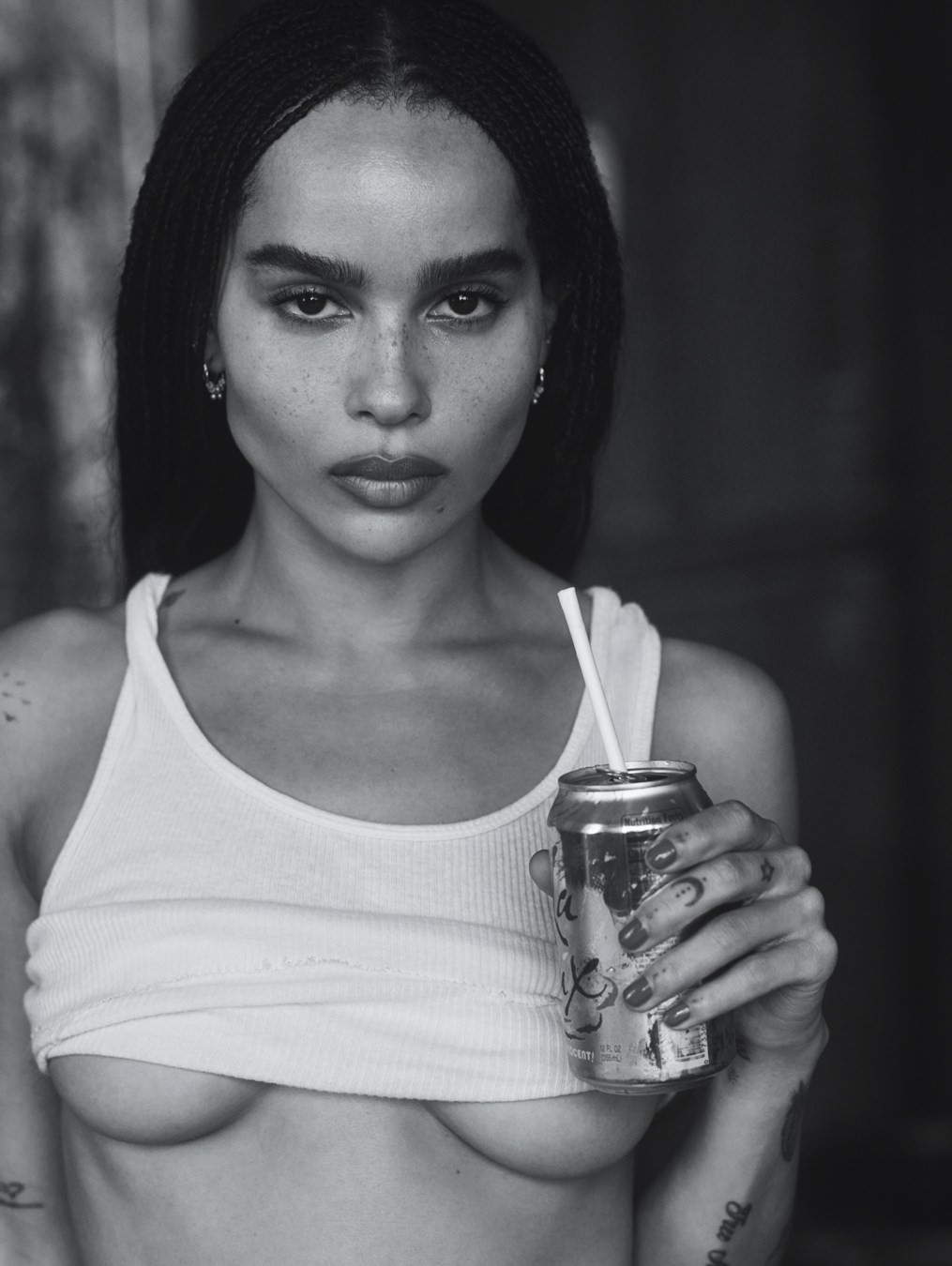
An ability to flit seamlessly between indie flicks and mega-budget franchises is Kravitz’s superpower. Her turn as Robyn “Rob” Brooks in the 2020 TV adaptation of Nick Hornby’s 1995 novel, High Fidelity, may have been short-lived (it was cancelled after one series), but she cleverly reinvented it with millennials in mind. Her character, a female record store owner living in Brooklyn’s Crown Heights, who has flashbacks to and laments her ill-fated relationships with both men and women, ensures this is a far cry from the Stephen Frears movie of the same name, which John Cusack and her mother starred in 20 years earlier. Kravitz, here, plays the Cusack role.
In addition to the lead character, Kravitz was an executive producer on the project and her command was seen everywhere from the freewheeling, globe-trekking soundtrack to the directing decisions. “I don’t think the network understood the importance of that story,” she says, “but I am still touched by how many women, especially women of colour, come up to me saying they loved it.”
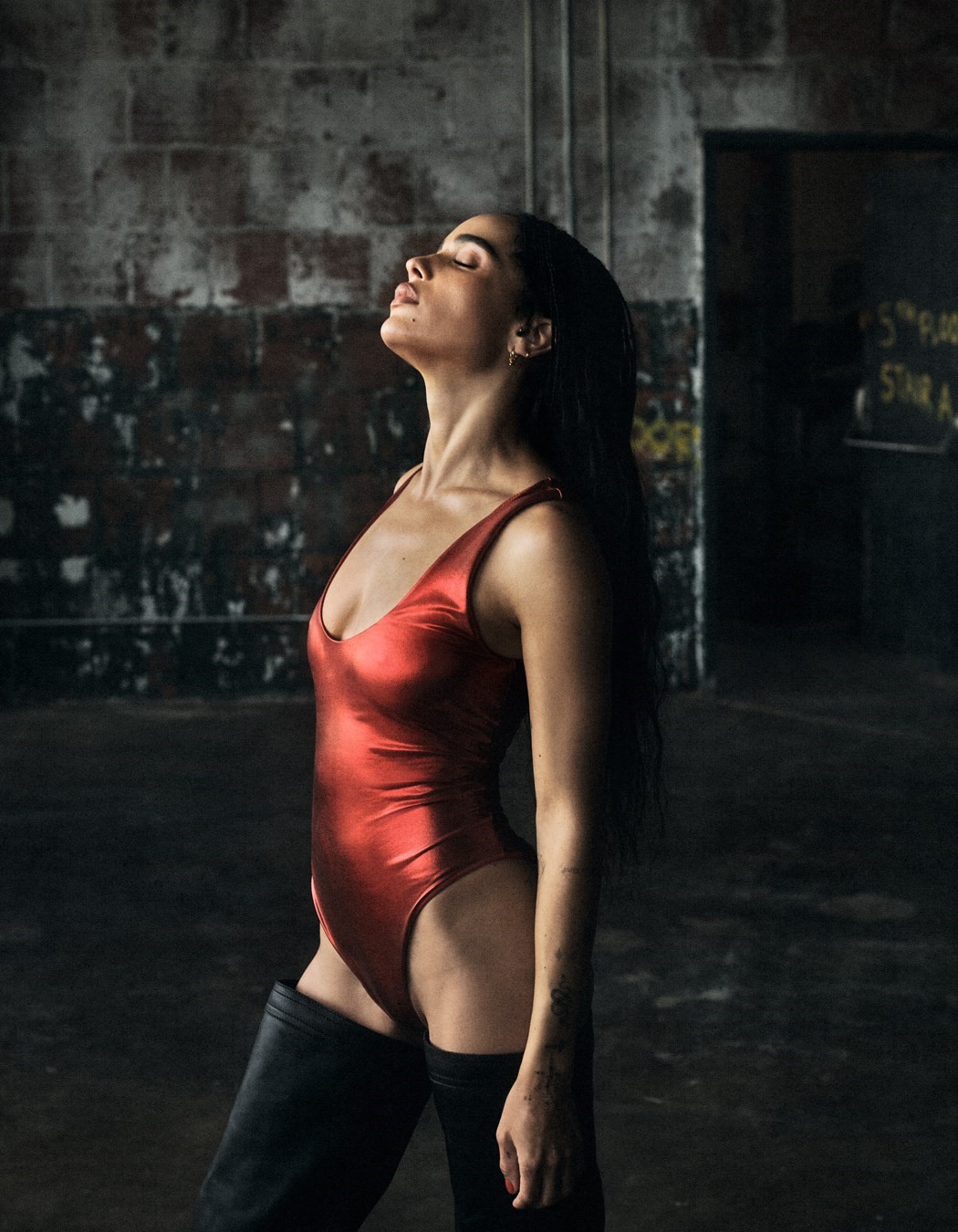
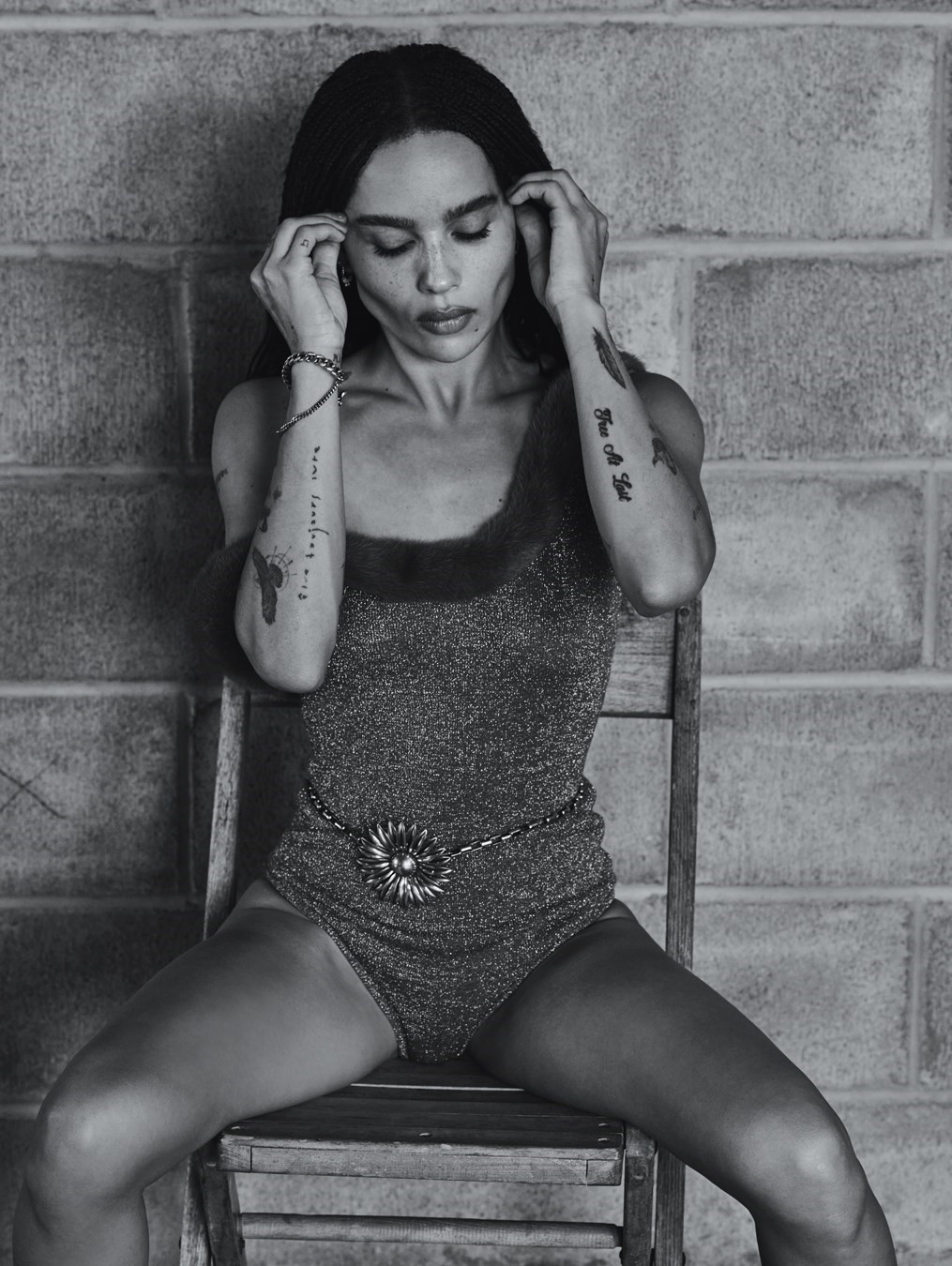
In the midst of the Covid-19 pandemic, she left her Williamsburg home for London to take on her biggest role yet, starring alongside Robert Pattinson’s Batman as Selina Kyle – aka Catwoman. She had already played the role, after a fashion, in 2017’s The Lego Batman Movie, but now she can get her teeth into a character that has already been portrayed by Michelle Pfeiffer, Halle Berry and, most recently, Anne Hathaway. It was the biracial Eartha Kitt’s 1960s Catwoman – coming as it did in an era of racial tensions even more heightened and politicised than our own – that has remained in memory, immortalised. Today the role comes with its own legacy and feverishly passionate fanbase. The weight of that didn’t go unnoticed by Kravitz, but it didn’t deter her either. “It was different. It was scary. It was unexpected for me. And that was what was exciting.”
With megastardom on the cards, her rise hasn’t come without setbacks. After marrying actor Karl Glusman in an intimate ceremony at her father’s Paris home in 2019, she filed for divorce 18 months later – a dark spot on an otherwise bright few years but the start of an invigorating new chapter. She feels affirmed – unafraid. Her feature directorial debut Pussy Island was recently acquired by MGM. Kravitz herself is reluctant to divulge much but she’s already hard at work on the project, off to scout for locations after we meet. “I am 32 and it’s fucking fantastic,” she says. “I am happy about all the experiences. If you don’t learn and grow, what’s the point?”
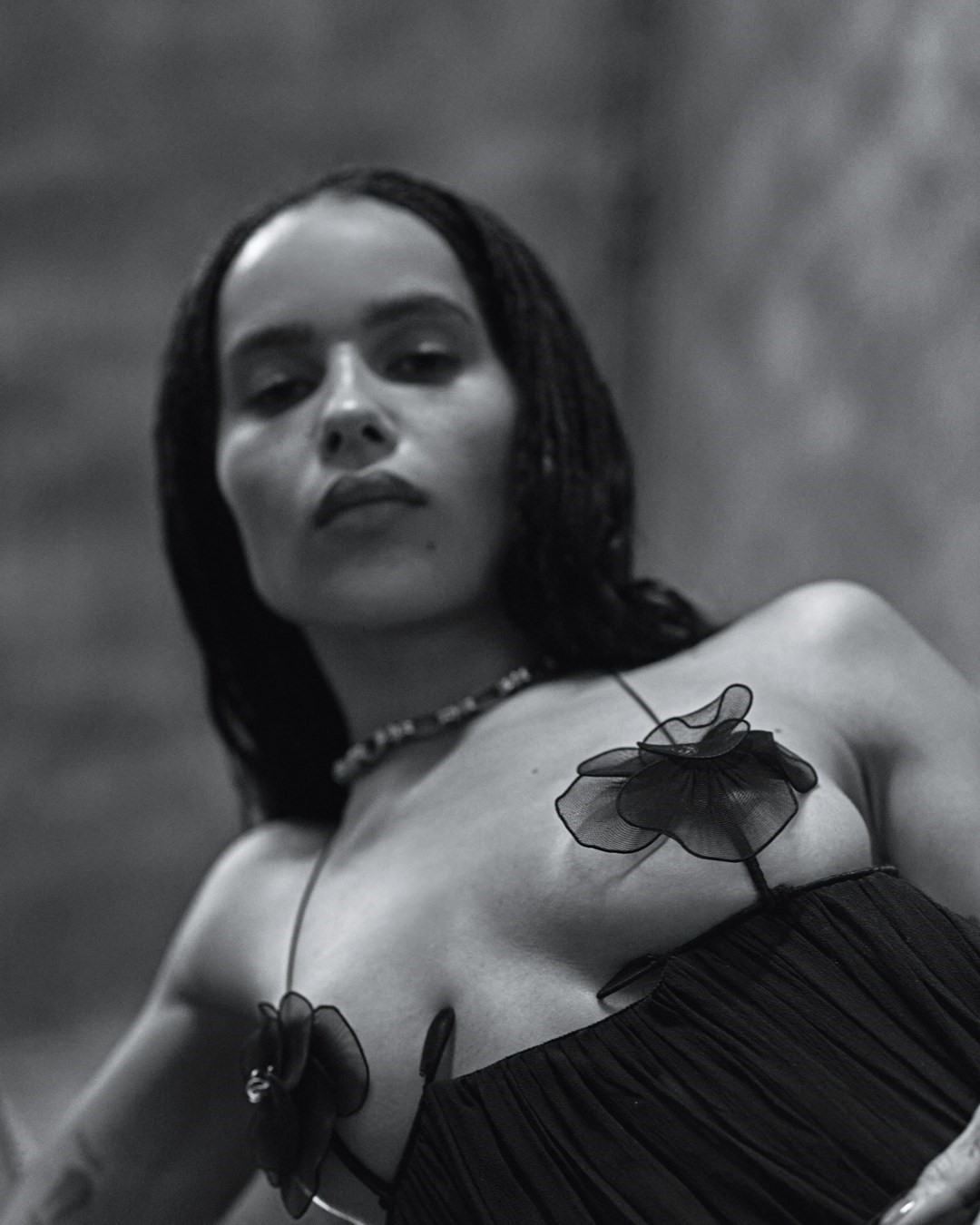
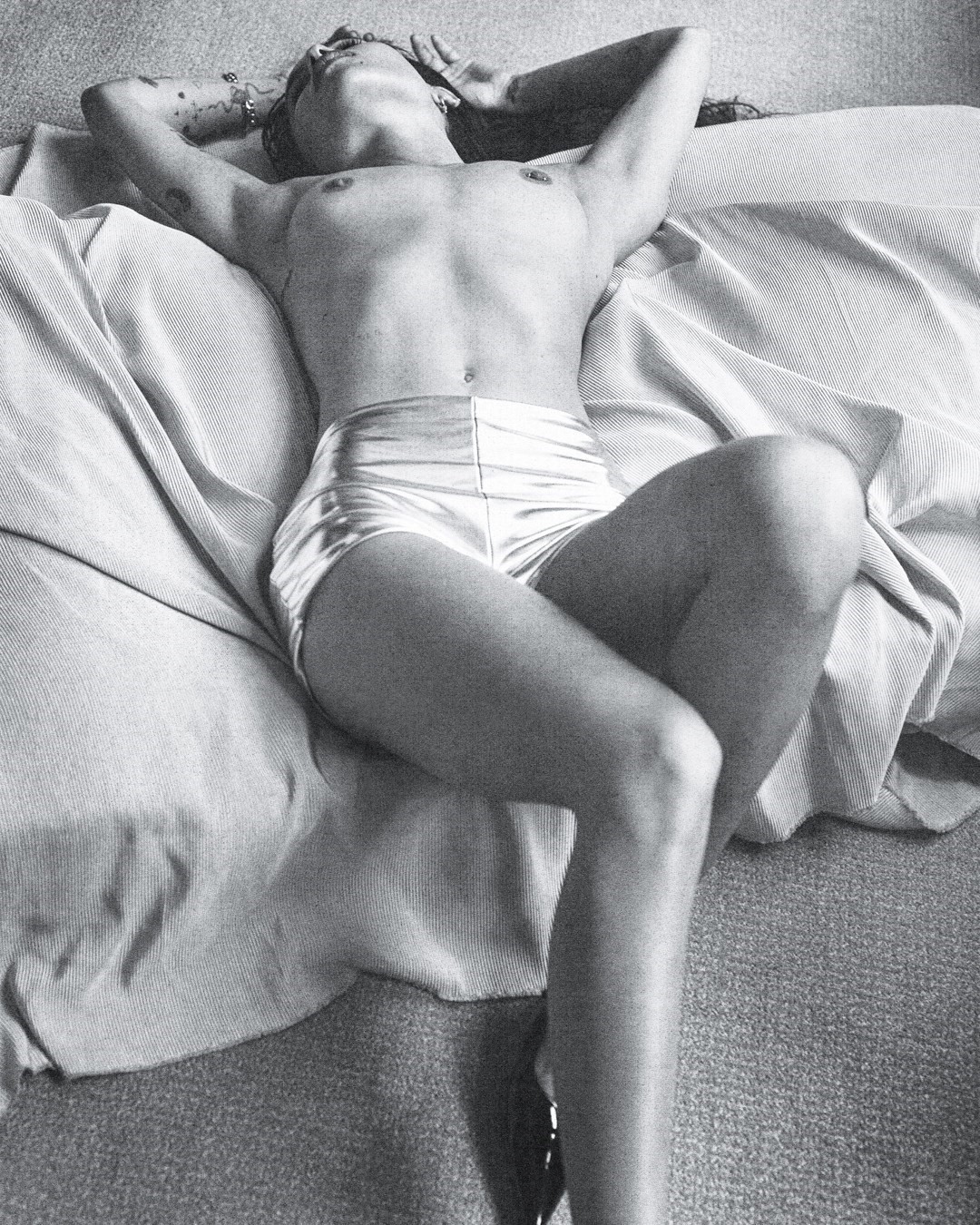
Lynette Nylander: How have you been spending your time in these strange circumstances we find ourselves in? What’s been your reality in the pandemic?
Zoë Kravitz: It’s been so many things. I never had to worry about my job or where I was going to live – how I was going to pay rent or for food. In that respect, I’m very lucky. I also worked a lot through it. We had already started shooting The Batman when it happened. It was crazy because we were shooting this big movie and then everything stopped. The movie was shut down for six months. I stayed in London for three months, in a house in Notting Hill, this dark, funny house in London. It was very weird being away from home and my family being in other places.
LN: Whereabouts are your family?
ZK: My dad’s in the Bahamas. My mom’s in California. Eventually I ended up coming back here to New York for a couple of months and living upstate, which was good for me. I think it was important to take the time to feel all the things that we were all feeling. I realised how I was personally using the fast-paced life as a way of not doing and dealing with a lot of things. I’m very thankful for that time to really sit and look at, “Who am I? What do I want to be doing? How do I want to spend my time? How am I connecting with my friends and family when I talk to them?” All of those things, I had to look at.
LN: I am interested in your childhood from your perspective and the allure of your family. Everyone says you’ve got the coolest parents in the world. Though to you they’re simply Mum and Dad. That photo of you at a fashion event sitting next to Donatella Versace springs to mind.
ZK: Yeah, if you look closely at that picture, I’m looking at my nails. I’m bored. I want to hang out with my friends. You know what I mean? Yes, that stuff is very cool from the outside, but when you’re a kid you don’t know what that means. It doesn’t feel the same. It was all very normal to me and then alienating in a lot of ways because when you’re a kid you’re just trying to fit in with other kids. Standing out was the worst thing in the world.
LN: How old were you when your parents separated?
ZK: Two. I don’t even remember them together but they were very friendly. I lived with my mom in LA primarily until I was 10 or 11. My dad was on tour then, so I didn’t see him very often. He’d be in town for a month or a couple of days. It was the schedule. He was around, but it wasn’t one week on, one week off, or anything like that. When I was 11, I moved in with him for a couple of years in Miami, near the Bahamas, where his family is from. I moved out when I was 18 and came to New York.
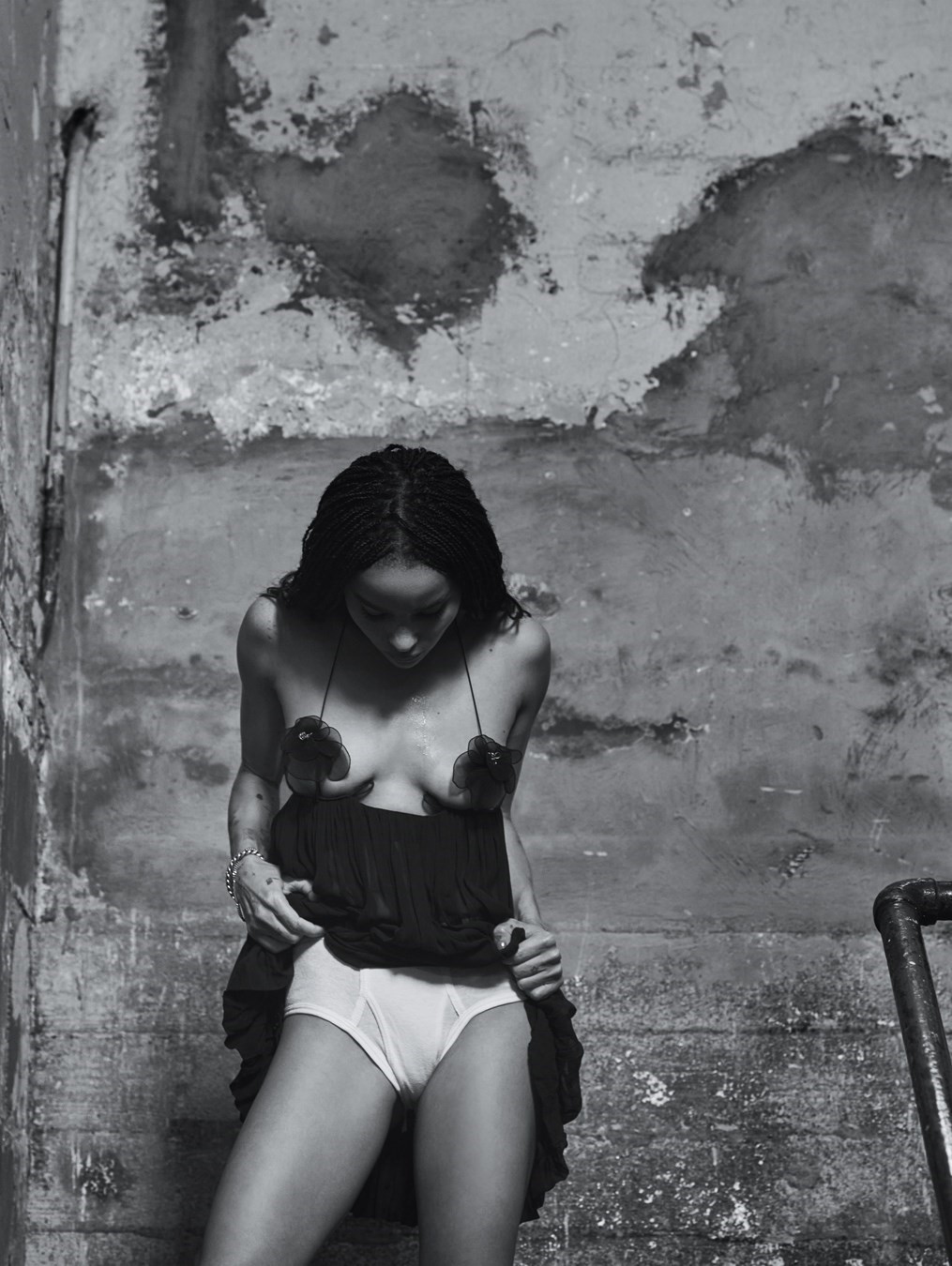
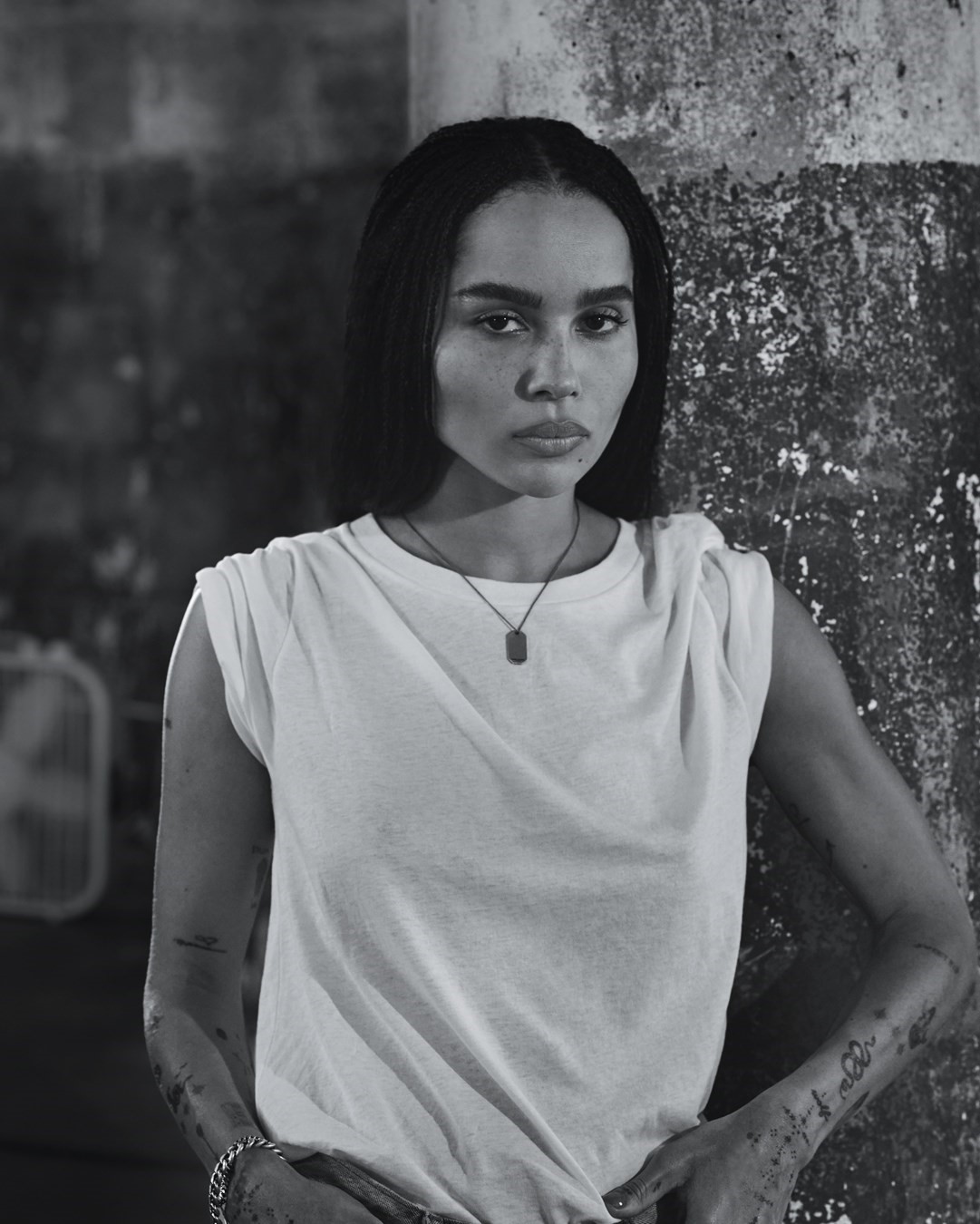
LN: It’s natural to put you in an indie-role category – how do you navigate your career and choose the breadth of roles that you do?
ZK: I don’t put a lot of thought into it in terms of, “I have to do something different so I don’t get boxed in and put into a corner.” We have many layers. I’m very lucky to be able to be creative for a living. I simply want to have fun and explore and challenge different sides of myself. If I read something that I feel that I’ve seen or done before, it doesn’t spark that thing inside me. When I read something unexpected for me, it’s exciting and scary. It makes me feel alive.
LN: I love that you changed your Instagram bio to Black Lives Matter.
ZK: There’s nothing else to say. If you disagree with that you should leave.
“I’ve felt pressure to post something that I wasn’t ready to post about or didn’t know enough about. It affected me. It can feel like if you don’t post about something that means you don’t care about it” – Zoë Kravitz
LN: I remember that it used to read “Trying not to be a TOTAL asshole since 1988”.
ZK: That’s the point, we’re all quite an asshole sometimes, and that needs to be OK.
LN: You are not afraid to put yourself out there. LGBTQ+ advocacy, Black Lives Matter – political conversations.
ZK: I feel like we’re living in a very odd time, where people confuse posting something with activism, which is not the same thing. There are people who dedicate their lives and their time and their physical bodies to being at rallies and meetings and being on the front lines.
I always want to make it very clear that I am not that person. I’m not saving the world.
That’s been a really difficult thing, emotionally, for me, where I’ve felt pressure to post something that I wasn’t ready to post about or didn’t know enough about. It affected me. It can feel like if you don’t post about something that means you don’t care about it. That’s conflicting for me because sometimes I don’t have enough information and need to learn more, or I don’t want to be on my phone today and something’s going on in the world. I’ll get a lot of hate for not talking about something, and I’m like, “I’m not a fucking news anchor.” Also, just because I don’t post on this thing it does not mean that I’m not feeling it or learning about it. My silence doesn’t mean I’m taking a side. The internet is not the real world.
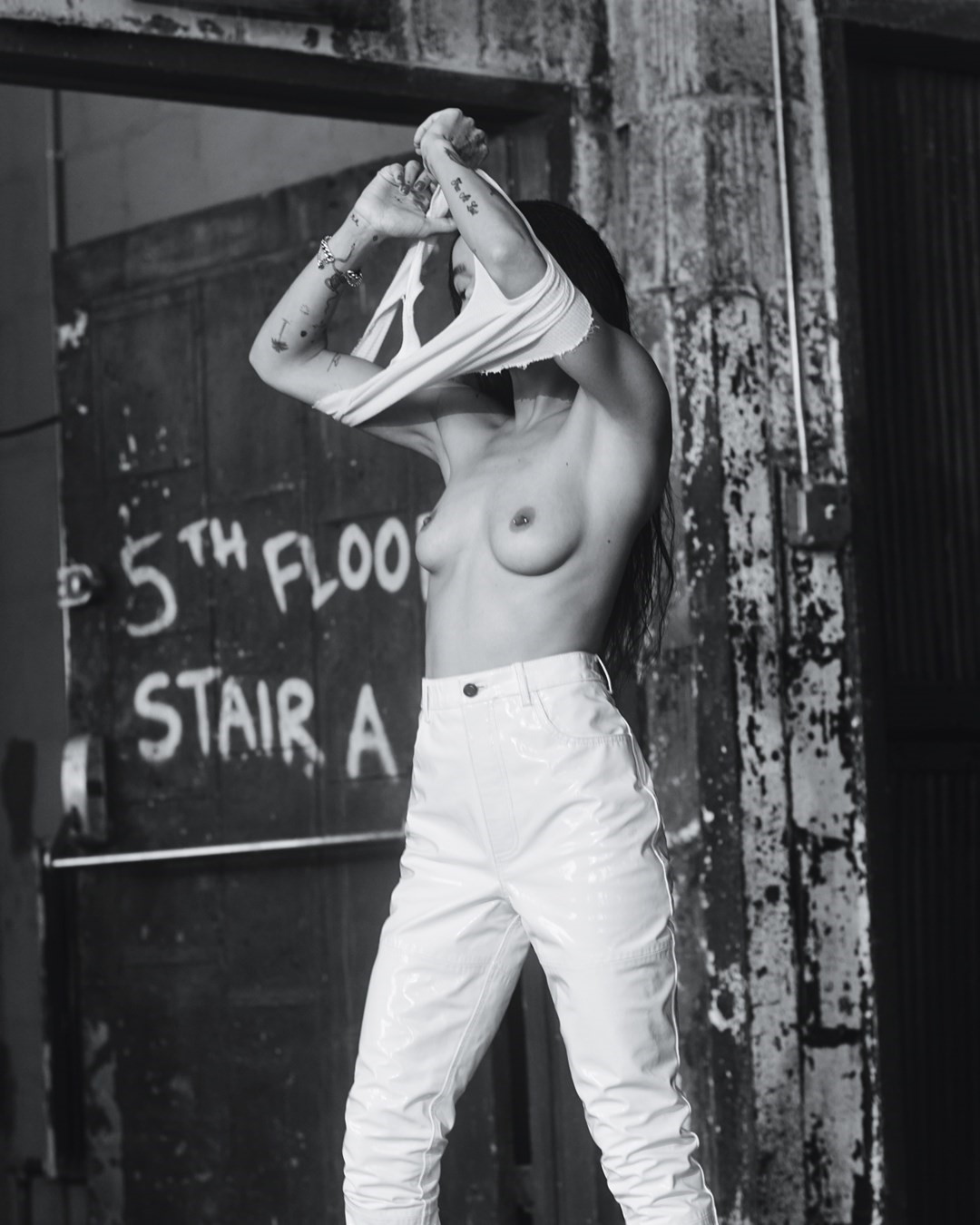
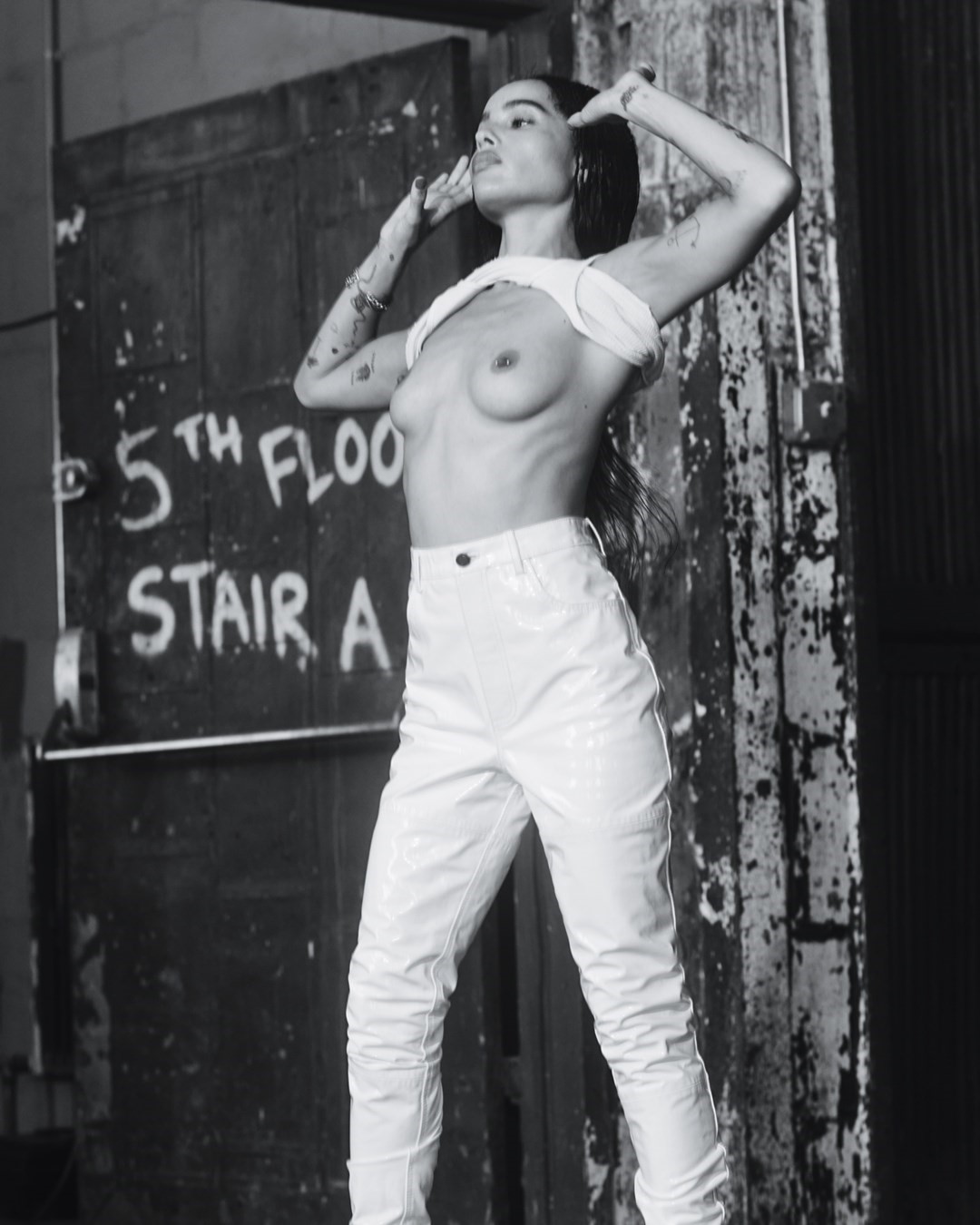
LN: How did the Catwoman role come about?
ZK: My agent called me and was like, “They’re making a Batman movie and there’s a Catwoman role. You’re on the list of actors they are looking at.” I think the first thing that happened was I went to LA and met with Matt Reeves, the director, who also wrote the script, and just talked to him.
I read the script. Then he talked with me again to hear my thoughts, to see if we were on the same page. I didn’t know him well and it was a bit of a process. When these big opportunities come up, these big roles, and you really want them, it’s heartbreaking when you don’t get them. You put a lot of energy into it.
The thing that I tried to keep in check throughout, though, was just wanting to be agreeable and likeable to get the role. To read the script and say, “I love it. I love everything about it.” Then I go to the audition and I have this puppy dog energy.
It was important to give him an idea of what it’s really like to work with me. To say what I really think and, if we’re on set together, to ask the questions I want to ask. I tried to come at it from the angle where I am showing him what I see and feel about this character. I believe that’s why it happened and I got the role. Matt’s a fantastic director, and he’s really into talking about the character. We had some really good conversations. I had some thoughts about the character once I’d read the script too and they were welcomed.
LN: Have you seen all the other Batman movies?
ZK: I’ve seen all the movies, yeah. I’ve read some of the comics now, but I wasn’t a comic head or anything. I also tried to think about it not as Catwoman, but as a woman, how does this make me feel? How are we approaching this and how are we making sure we’re not fetishising or creating a stereotype? I knew it needed to be a real person.
LN: How do you feel about the importance of that massive comics universe? It’s different from what you’ve previously done. Those fans are hardcore.
ZK: They are, and because I respect them so much I chose not to think about them when making the movie. If I’m thinking about wanting everyone to like it and wanting all the fans to like it, I’m not going to actually bring a real person to life. Matt wrote a really interesting story with a complex character, and the relationships are really interesting. All I wanted to do was honour that story.
Sometimes with really big movies, it can feel like you’re just a puppet and part of this big machine. This felt like an independent movie in the way that there was real heart and soul and thought being put into the process and into every scene. It was incredibly collaborative. Matt’s very specific. It took him a year to make this because of Covid. We were in this bubble, really in this world, and it was an incredible experience. To spend a year of your life, and it’s very physically demanding ... I had to be in very specific shape, and there’s a pandemic going on. I’m being zipped into a catsuit every day at 7am, working 12-hour days and then coming home and working out. It was intense.
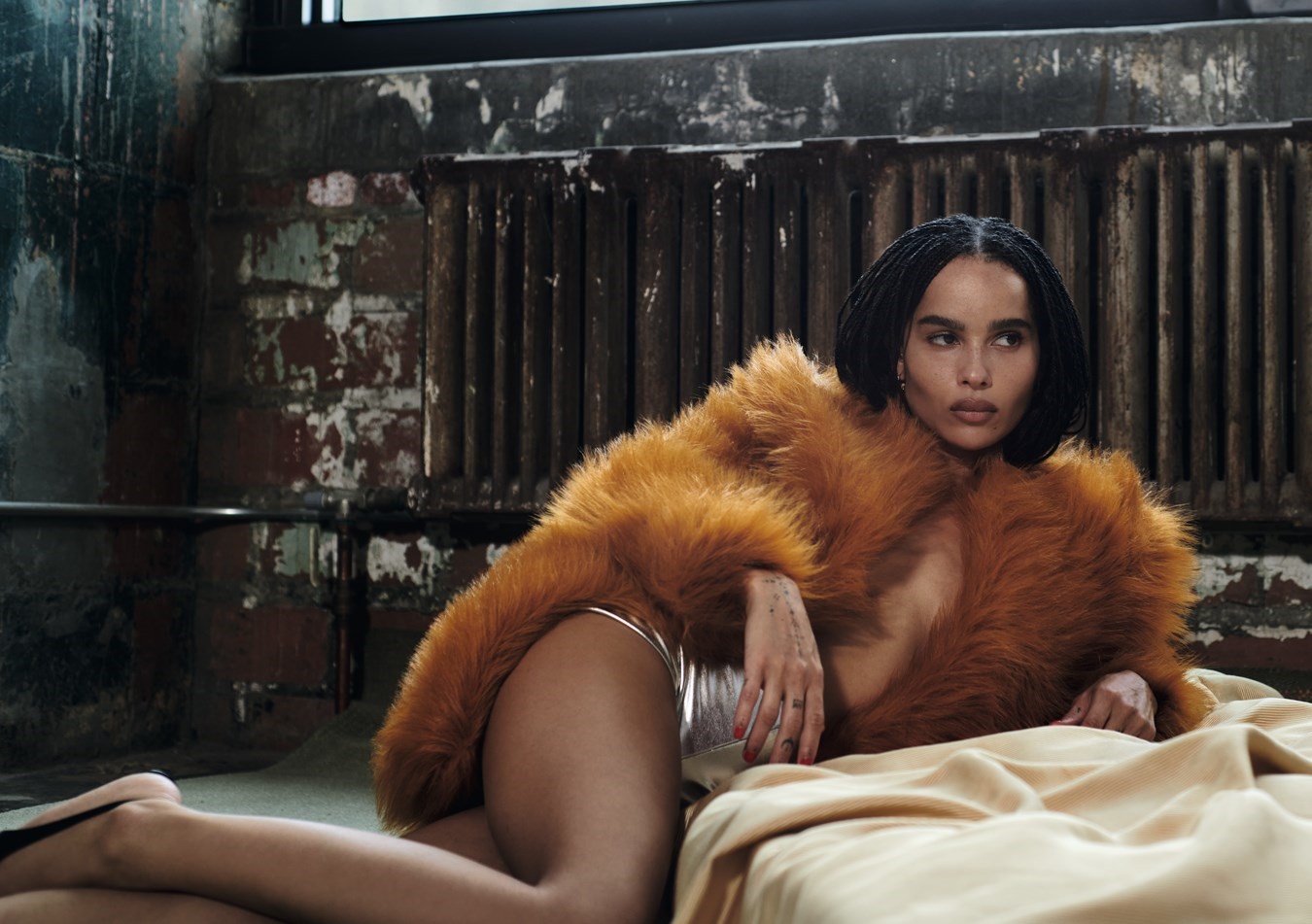
LN: You’ve been working on your feature directorial debut, Pussy Island, too, which you also wrote.
ZK: I’ve been writing it for four years. I want to be careful about how I speak about it and what information I put out there because there are a lot of layers to the story. I was actually in London shooting Fantastic Beasts when I started to write it. I had a decent amount of time off during that film, and I was feeling a lot of frustration and anger towards men, specifically in my industry, and I felt like this wasn’t a conversation that was happening at the time. Then my imagination ran away with me and I started writing a story around those feelings. Then Harvey Weinstein happened and the world changed. This story has evolved with the world evolving, which has been interesting and which is part of the reason it took so long. This conversation is happening in real time.
LN: And you want it to reflect what was and is happening?
ZK: Yeah, and my opinions changed and the world changed, and so the characters and their interactions have had to change. That was interesting. It was this living, breathing thing. It’s been a crazy journey, writing this movie, and I’m in love with it. I’m so excited to bring it to life.
“It’s so complex, that space, when you’re in between heartbroken and mourning the loss of something and excited for what’s ahead of you” – Zoë Kravitz
LN: When you wrote it, did you imagine you’d also direct it yourself? What was the plan?
ZK: Maybe not right away. I wrote the lead role for myself, assuming I’d be in it, just naturally, because I was writing it from my perspective, in a way. Then, maybe a year in, I had decided that I wanted to direct it and that I didn’t want to do both. It was actually really fun, creating this character and taking her away from me and making her something that is not a version of me. Writing something for a woman that she can sink her teeth into, as I’m constantly reading one-dimensional, boring roles. So now we have [British actor] Naomi Ackie on board. I feel very lucky to have her.
We’re in prep right now. We’re still figuring out when we’re going to shoot – there are a lot of different factors. Schedules and locations and stuff. It’s the fun part right now, where we get to see how it all falls together. It will start filming either at the end of this year or sometime next year. I’m still figuring it out.
LN: Are you nervous?
ZK: I am. In a really good way – nervous and also very ready. I know the story inside out. I know how to tell it. I know what I want to do. I know where I’m coming from emotionally. I’m going to learn a lot and it’s going to be hard, but the challenge is good.
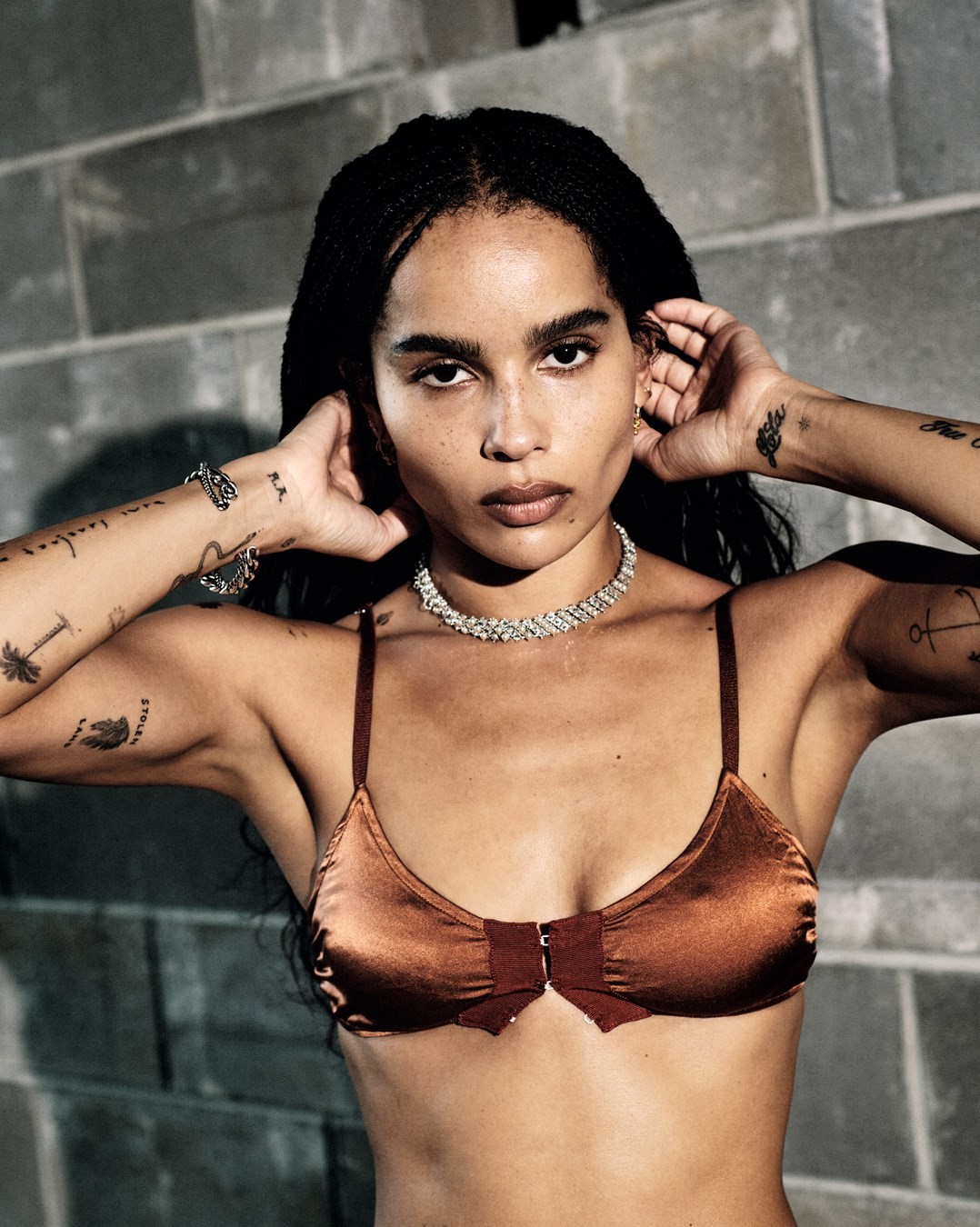
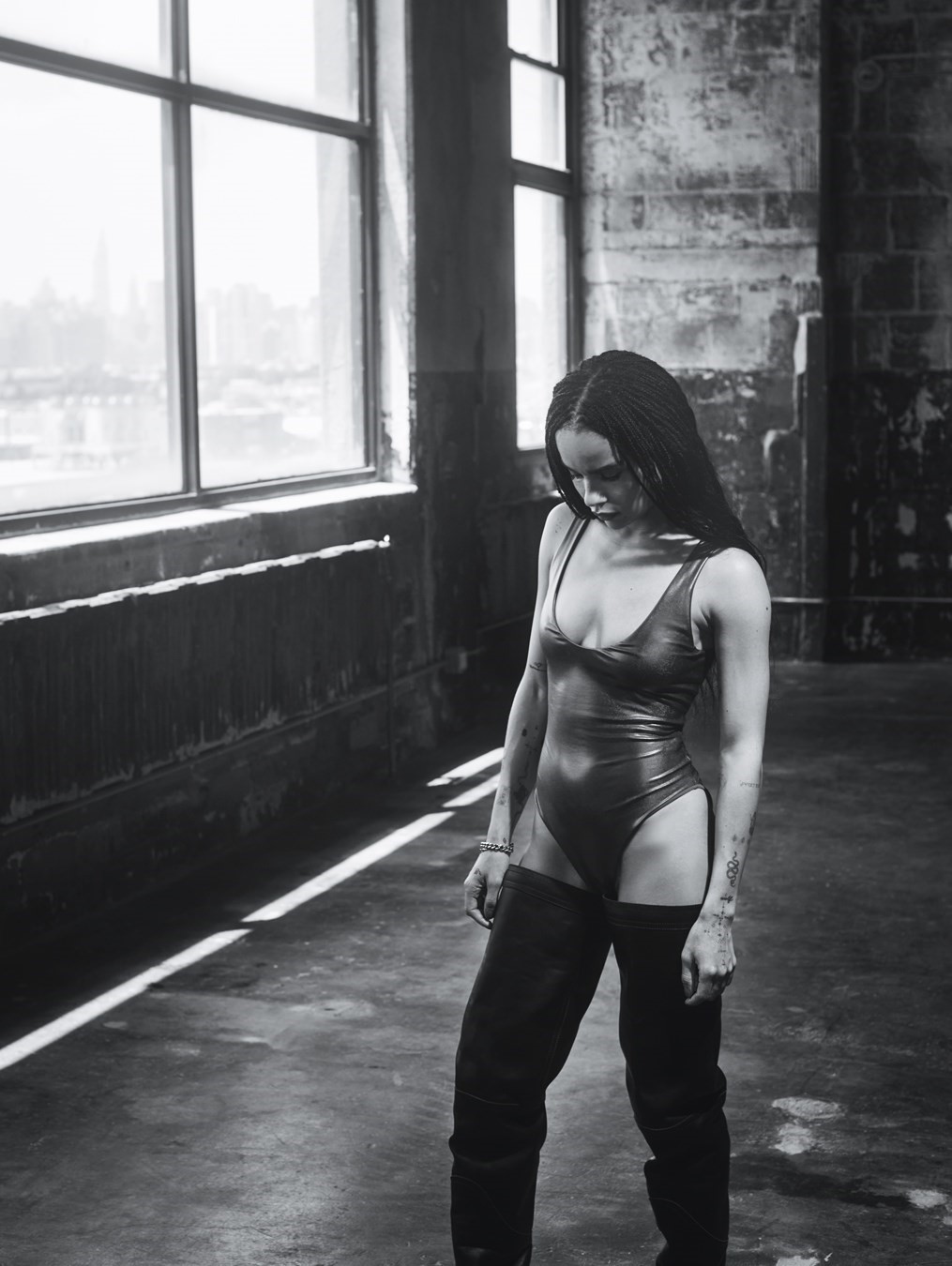
LN: From my perspective, to see so many female directors shine in the past few years seems new. There had been odd glimpses before but I feel like there’s such a great wave of women telling worthwhile stories now. And you can always tell when a woman has directed the film.
ZK: Of course you can. It’s been really interesting also looking for crew and seeing what’s out there. I’m looking for DPs, most are white men and then white women. There are very few Black female DPs, Asian female DPs, queer DPs, queer female DPs. People are aware of that now and it’s at least progress to be having these kinds of conversations. Especially as a first-time director, I want someone that’s done it before. And the people who’ve done it before are white men. It’s like being stuck between a rock and a hard place. I haven’t chosen a DP yet. I don’t know what it’s going to look like. I’m trying to just stay open and feel it out.
LN: You also just wrapped on Kimi with Steven Soderbergh.
ZK: I loved working with him. It was a really fucking fun movie. It was my first time working with him. To get that phone call and to star in one of his movies was a wild experience. He is a true genius. Watching him work, especially going into directing, was like a college education. It’s so nice to meet a filmmaker who’s been doing it for so long and who’s still so interested and invested in finding new ways to tell stories. He wants to work. He wants to do new things. He loves filmmaking. It’s amazing.
LN: Have you had time for your music amid all of this?
ZK: Well, the band is no more but I’ve been recording a solo album with Jack Antonoff for a couple of years, on and off. It’s been hard with the schedule and the pandemic. Jack is a fantastic producer – he’s so good at really tapping into who he’s working with and not making it about him. Some producers want to make it about ... like, “I’m going to put my sound on you.” It’s what I experienced with my band. But for him to want to help me realise what I’m hearing in my head has been a really wonderful experience and very therapeutic. I wrote it over a long stretch of time, subconsciously just capturing this range of emotions, which has been interesting to look back on and see what I was writing about them, then and now and in between. It’s personal. It’s about love and loss. I got married. I got divorced. Separations, break-ups are sad but are beautiful things too. It’s about the bittersweetness, that beginning and that end. It’s so complex, that space, when you’re in between heartbroken and mourning the loss of something and excited for what’s ahead of you.
LN: Do you feel happy? Your twenties are crazy, I feel. I was holding on for dear life.
ZK: I was too. Now I’m holding on to my thirties and I’m like, “Can I just stay here, though? This is nice.” It’s great making better decisions, knowing what works for you, knowing what feels good to you, knowing what real fun is, not just the idea of fun. We’re in a sweet spot. We need to enjoy it and not pretend to be adults that don’t do fun things any more. It should be, “I’m in my thirties. Let’s do more things.”
Hair: Nikki Nelms at Ice Studios using MAUI MOISTURE. Make-up: Nina Park at Kalpana using YSL BEAUTY. Manicure: Aki Hirayama at Tracey Mattingly using YSL BEAUTY. Set design: Maxim Jezek at Walter Schupfer. Digital tech: Jarrod Turner. Lighting: Ari Sadok. Photographic assistants: KT Tucker and Rob Orlowski. Styling assistant: Taryn Bensky. Set-design assistants: Odin J Grina and Natalia Janul. Executive producer: Shea Spencer at Artists Commissions. Production: Jemma Hinkly at Artist Commissions and Alana Amram at Hen’s Tooth Productions. Production assistant: Donovan Powell. Post-production: Two Three Two.
This article appears in the Autumn/Winter 2021 issue of AnOther Magazine which will be on sale internationally from 7 October 2021. Pre-order a copy here.
